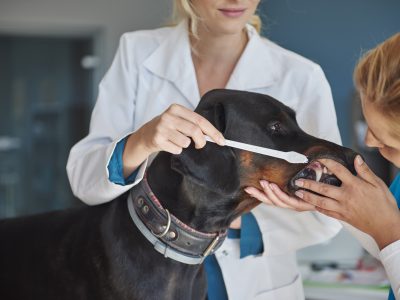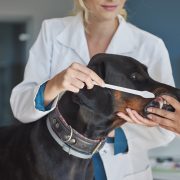Oh boy, deciding when to take your furry friend to a vet can sometimes feel like solving a puzzle, doesn’t it? Just like us, our pets can have off days, but it’s crucial to figure out when those off days need professional attention. Here’s a simple guide to help you know when a visit to the veterinarian might be necessary.
Understanding Your Pet’s Normal Behavior
First things first, you need to know what’s normal for your pet. Some are naturally more laid-back, while others could give the Energizer Bunny a run for its money! By understanding their usual habits and behaviors, you’ll be better equipped to notice when something’s amiss. And trust me, those little changes can be big red flags.
When to Head to the Vet
1. Changes in Appetite or Water Consumption
If your pet suddenly turns its nose up at food or starts drinking water like there’s no tomorrow, it might be time to visit a vet. Both excessive thirst and a lack of appetite are not things to take lightly, as they could indicate anything from stress to serious health issues.
2. Unusual Behavior or Lethargy
We all know our pets have bad days just like us, but if your usually playful pup or curious cat has turned into a couch potato, it might be worth checking out. A sudden change in behavior or an unusual level of lethargy could be a sign that a visit to the veterinarian is in order.
3. Persistent Vomiting or Diarrhea
An occasional upset stomach isn’t uncommon, but if your pet is frequently vomiting or dealing with diarrhea, it’s time to get professional help. These symptoms can quickly lead to dehydration and other serious complications.
4. Trouble Walking or Reluctance to Move
Watch for signs of difficulty in getting around or a reluctance to jump or climb stairs. These could be signs of injury, arthritis, or other health issues that need attention from a professional.
5. Unexplained Weight Loss or Gain
If you notice your pet’s weight is changing without any changes in diet or activity level, something’s up. Weight fluctuations can indicate a variety of health issues, from hormonal imbalances to more serious conditions.
Regular Check-Ups Are Key
Remember, even if your pet seems perfectly healthy, regular check-ups are vital. These visits can catch issues before they become serious and help keep your furry friend in tip-top shape. It’s not just about tackling problems but maintaining overall wellness.
Conclusion
Pets are part of the family, and just like any family member, their health and wellbeing are paramount. Keeping an eye out for the signs mentioned above and maintaining regular check-ups with a vet can ensure that your beloved pet stays healthy and happy for years to come. After all, their wagging tail or purring by your side is what makes our days brighter, right?
So, don’t wait for the obvious signs of distress. Sometimes, being proactive about health care can save you and your pet from future troubles. Here’s to many more joyful years with your fuzzy companions!












Comments